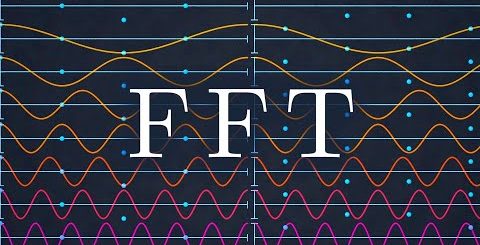What Does IQ Actually Measure?
IQ is supposed to measure intelligence, but does it? Head to https://brilliant.org/veritasium to start your free 30-day trial, and the first 200 people get 20% off an annual premium subscription.
If you’re looking for a molecular modeling kit, try Snatoms – a kit I invented where the atoms snap together magnetically – https://ve42.co/SnatomsV
▀▀▀
A huge thank you to Emeritus Professor Cecil R. Reynolds and Dr. Stuart J. Ritchie for their expertise and time.
Also a massive thank you to Prof. Steven Piantadosi and Prof. Alan S. Kaufman for helping us understand this complicated topic. As well as to Jay Zagrosky from Boston University’s Questrom School of Business for providing data from his study.
▀▀▀
References:
Kaufman, A. S. (2009). IQ testing 101. Springer Publishing Company.
Reynolds, C. R., & Livingston, R. A. (2021). Mastering modern psychological testing. Springer International Publishing.
Ritchie, S. (2015). Intelligence: All that matters. John Murray.
Spearman, C. (1961). ” General Intelligence” Objectively Determined and Measured. – https://ve42.co/Spearman1904
Binet, A., & Simon, T. (1907). Le développement de l’intelligence chez les enfants. L’Année psychologique, 14(1), 1-94.. – https://ve42.co/Binet1907
Intelligence Quotient, Wikipedia – https://ve42.co/IQWiki
Radiolab Presents: G. – https://ve42.co/RadioLabG
McDaniel, M. A. (2005). Big-brained people are smarter: A meta-analysis of the relationship between in vivo brain volume and intelligence. Intelligence, 33(4), 337-346. – https://ve42.co/McDaniel2005
Deary, I. J., Strand, S., Smith, P., & Fernandes, C. (2007). Intelligence and educational achievement. Intelligence, 35(1), 13-21. – https://ve42.co/Deary2007
Lozano-Blasco, R., Quílez-Robres, A., Usán, P., Salavera, C., & Casanovas-López, R. (2022). Types of Intelligence and Academic Performance: A Systematic Review and Meta-Analysis. Journal of Intelligence, 10(4), 123. – https://ve42.co/Blasco2022
Kuncel, N. R., & Hezlett, S. A. (2010). Fact and fiction in cognitive ability testing for admissions and hiring decisions. Current Directions in Psychological Science, 19(6), 339-345. – https://ve42.co/Kuncel2010
Laurence, J. H., & Ramsberger, P. F. (1991). Low-aptitude men in the military: Who profits, who pays?. Praeger Publishers. – https://ve42.co/Laurence1991
Gregory, H. (2015). McNamara’s Folly: The Use of Low-IQ Troops in the Vietnam War; Plus the Induction of Unfit Men, Criminals, and Misfits. Infinity Publishing.
Gottfredson, L. S., & Deary, I. J. (2004). Intelligence predicts health and longevity, but why?. Current Directions in Psychological Science, 13(1), 1-4. – https://ve42.co/Gottfredson2004
Sanchez-Izquierdo, M., Fernandez-Ballesteros, R., Valeriano-Lorenzo, E. L., & Botella, J. (2023). Intelligence and life expectancy in late adulthood: A meta-analysis. Intelligence, 98, 101738. – https://ve42.co/Izquierdo2023
Zagorsky, J. L. (2007). Do you have to be smart to be rich? The impact of IQ on wealth, income and financial distress. Intelligence, 35(5), 489-501. – https://ve42.co/Zagorsky2007
Strenze, T. (2007). Intelligence and socioeconomic success: A meta-analytic review of longitudinal research. Intelligence, 35(5), 401-426. – https://ve42.co/Strenze2007
Deary, I. J., Pattie, A., & Starr, J. M. (2013). The stability of intelligence from age 11 to age 90 years: the Lothian birth cohort of 1921. Psychological science, 24(12), 2361-2368. – https://ve42.co/Deary2013
Flynn, J. R. (1987). Massive IQ gains in 14 nations: What IQ tests really measure. Psychological bulletin, 101(2), 171. – https://ve42.co/Flynn1987
Why our IQ levels are higher than our grandparents’ | James Flynn, TED via YouTube – https://www.youtube.com/watch?v=9vpqilhW9uI
Duckworth, A. L., Quinn, P. D., Lynam, D. R., Loeber, R., & Stouthamer-Loeber, M. (2011). Role of test motivation in intelligence testing. Proceedings of the National Academy of Sciences, 108(19), 7716-7720. – https://ve42.co/Duckworth2011
Kulik, J. A., Bangert-Drowns, R. L., & Kulik, C. L. C. (1984). Effectiveness of coaching for aptitude tests. Psychological Bulletin, 95(2), 179. – https://ve42.co/Kulik1984
▀▀▀
Special thanks to our Patreon supporters:
Adam Foreman, Amadeo Bee, Anton Ragin, Balkrishna Heroor, Benedikt Heinen, Bernard McGee, Bill Linder, Burt Humburg, Dave Kircher, Diffbot, Evgeny Skvortsov, Gnare, John H. Austin, Jr., john kiehl, Josh Hibschman, Juan Benet, KeyWestr, Lee Redden, Marinus Kuivenhoven, MaxPal, Meekay, meg noah, Michael Krugman, Orlando Bassotto, Paul Peijzel, Richard Sundvall, Sam Lutfi, Stephen Wilcox, Tj Steyn, TTST, Ubiquity Ventures
▀▀▀
Written by Derek Muller, Casper Mebius, & Petr Lebedev
Edited by Trenton Oliver
Filmed by Derek Muller, Han Evans, & Raquel Nuno
Animation by Fabio Albertelli & Ivy Tello
Additional video/photos supplied by Getty Images & Pond5
Music from Epidemic Sound
Produced by Derek Muller, Casper Mebius, & Han Evans








I just took an IQ test and I am SO happy…
Thank God it came back negative!
Imagine being intelligent 🤓🧠
This made my day. 🤣 top tier 👌
I tried turning up the brightness on my microphone, but I still sound dim.
@truejimah yes making a microphone brighter
Mine came back positive 2 🤓
I’m reminded of Goodhart’s law: “When a measure becomes a target, it ceases to be a good measure.”
What gets measured gets managed, and what gets managed will be gamed.
Except figuring out how to game things is… You got it, correlated highly with IQ… Obviously.
@Crimsonwhocares Maybe, but for the purposes of the OP and my reply it doesn’t really matter who figures it out.
I can think of some exceptions, such as happiness
@aceman0000099 Oh, you have a way to measure happiness?
30:12 I feel like you should’ve mentioned Lewis Terman’s “genetic studies of genius” here. This was a longitudinal study where kids in the Bay Area (since Terman worked at Stanford) were given IQ tests, and Terman would keep tabs on the highest scorers and compare their eventual life outcomes to the general population. Contrary to his expectation, the vast majority of his “Termites” had mundane adulthoods and fared no better than a random sample of people with similar socioeconomic backgrounds. And the real kicker: two eventual Nobel Prize winners, physicists William Shockley and Luis Walter Alvarez, grew up in the Bay Area and were tested, but did not score high enough to be included in the study.
Some funny stuff happens in a lot of those Stanford studies. When they went back to the marshmallow test kids 40 years later, that study that supposedly showed that patience as a kid helps you later in life, the results showed no statistical difference between the patient kids and the impatient ones in any meaningful category.
Probably because we have population wide studies showing high IQ predicts exactly what you would think it predicts like salary.
@IMightBeBiased It’s possible that over half of soft-science studies are unreproducible. This is doubly true if they involved children.
He didn’t really mention individual studies, because he looked at meta-analysis studies. Lewis Terman’s results might have shown no correlation, but 20 other very similar studies (as you can see in the video) gave significantly different correlations. You really need a sample size of 8 billion to get any accuracy, even then there will be flaws in the testing strategy.
Children develop at different rates, and just a few months equivalent development can make a huge difference in their scores. Even if kids are the exact same age, to the day, the differences in how fast they develop makes the results extremely unreliable. Wait until they’re at least 25 if you want meaningful IQ test results.
The practice part really matters. When I did this as a kid I got 9 or 10 points higher after practicing some tests to get used to the question types. Which in itself illustrates that intelligence testing is hard.
Uh., All this proves is that the testing is based on knowledge and not intelligence (aka the capability to learn anything)
It would be fantastic to have a follow-up video on the distinction between intelligence and rationality, for example by tapping into the work of Keith Stanovich. And Derek, that could be an opportunity to go back to some of the early Veritasium videos: Stanovich developed a rationality test measuring the RQ (rationality quotient), with questions that remind of questions you used to ask people in the street, like “would you take that bet?” and generally measure people’s ability to avoid logical fallacies or to display competent data literacy (which you discussed in videos like the one on the regression to the mean or the one on Kahneman’s system 1 and system 2). The rationality test is also more interesting than the IQ test: it is possible to have a high intelligence and still perform poorly on rationality questions. And when you see how Dan Kahan showed how intelligence is often used to protect biases, measuring rationality is a better predictor of the type of citizen someone will be and of the behaviour they will have regarding important issues like politics or climate change.
Wow that sounds very interesting, I really hope Derek reads your comment.
It is so random, I just learned about RQ today reading an academic paper. Yeah I am curious about this concept of RQ and how it differs from IQ. It would be a really interesting video topic.
And the thing with both IQ and RQ is, _personality_ makes both of them it’s bitch. High IQ people can wind up failing badly, for example going to prison, when they are narcissists, prone to emotional decision making and rage. While IQ (and presumably RQ) are both correlated with success, the best childhood predictor of later success in adulthood is not IQ but deferment of gratification. The famous _marshmellow test_ shows astonishing predictive capacity for success.
Of course, low IQ people can have personality flaws; they may even be more likely to than high IQ people. But having a high IQ won’t count for much if your life is in chaos, and you’re probably better off having an average IQ and a dependable personality than having a high IQ and being a sociopath, for example. The perfect case study that exemplifies this is Ted Kaczynski.
Found a smart comment, nice!
I’m going to predict R=0.8 on this one.
When I did my ASD and ADHD profiling, I did an IQ test. It was actually super helpful for understanding how my brain works as a neurodivergent person. My verbal IQ is 132 and my abstract reasoning is in the 99th percentile. But my working memory score was 83, and my digit span score was in the 3rd percentile lol
It helped me understand why I’m so smart and so dumb at the same time ? Like I can understand complex topics quickly and with very little context, but when I worked at subway while I was at uni, I had to ask what they wanted on their sub 5 times bc I couldn’t remember 😅
I just got done with my ASD and ADHD testing, at age 37, and yeah out of the 16 hours of testing in total, there was a lot of IQ type testing mixed in there 😀 I actually loved the pattern ones, i kept wanting to do more 😀 also the spatial testing was really neat!
edit: oh the “copy this crazy nutty drawing!”, then 10mins later, “remember that drawing? yeah draw it again….” then the next day!, again….
And on the 2nd day lots of random questions about the drawing, like “which one of these “patterns” was in the abstract drawing that you did yesterday”, or a “was this in the drawing from yesterday?”
I really want to know my score on that one. I felt good on my drawings, even on the 2nd day, but the “was this really in there?” really got to me, like i was getting false memories
Cecil: you’re smarter than 98.8% of the population
Derek: wow😒
Cecil: hopefully you’re not disappointed
Derek: *visibility disappointed*😕
There are 30 million Americans with a score less than 80… let that sink in. 🤣
ngl i was kinda sad for him when i heard 118 fluid int
The best explanation of correlation coefficient I’ve heard definitely going on my statistics playlist.
I always found the hardest part about having to take these tests was being in a classroom with closed doors, not being able to move or make noise, dealing with the noise of other people fidgeting or clicking/whatever and the social construct of appearing to find something difficult or easy in front of other students. With the much harder questions I felt observed and analysed and would attempt to jot down answers before I had actually arrived at some conclusion. I always performed fairly well but not as well as I could have due to the constraints forced upon me by the examination conditions. As a young child, most people predicted I would be wildly successful in academia and life in general. And although now I am finally getting there – I struggled for many years with the sorts of things most people don’t ever encounter. Social isolation, abuse, living in an orphanage, and some other facets – lead me to a life of complications. I finally published in an academic journal for my first time (an IEEE one) ten years after my peers of the same age. I also feel more capable than I perceive them to be; working faster and developing more robust understandings more readily than my peers. Anyway, hope you enjoyed my little anecdote.
I had an IQ test taken after I burnt-out in highschool. Where with most people the results on the different types of tests line up more or less, my scores had differences between them of at least 30 points- The average was 130 and you’d expect someone with a score like that to do well, but because the scores are so different it’s hard to make up for the parts I lack. It’s like my brain is constantly full of errors.
I now know, after getting a diagnosis, that having a wonky score like that is a relatively common thing with autistics (I also have ADHD and Dyslexia, which can also be a cause of such weird results).
IQ may be high, but I can’t work without burning-out within a year. I can’t live on my own or take care of myself.
Don’t consider that one IQ score as holy.
I did not know there were so many of us wow this comment section is full of ND people explaining how not very useful the number is to them.
@Aaron Cottle What is ND?
@Aeggyneurodivergent
Hey there, fellow ND. I can definitely relate to that. except my IQ scores were always below average, even though pretty much everyone around always tells me I’m intelligent. I’ve been called genius by some (which I thoroughly disagree). Anyway, much like you, I’m the kind who can easily grasp difficult mathematical ideas, but cannot cook my own meal without setting the neighborhood on fire.
Also, burnout is like a ghost that keeps haunting me.
Hey, literally the exact same situation here (minus dyslexia). 131 average, lowest category was 98 (!). The others were stable just above 131. And I can’t manage my life – at all. So I relate.